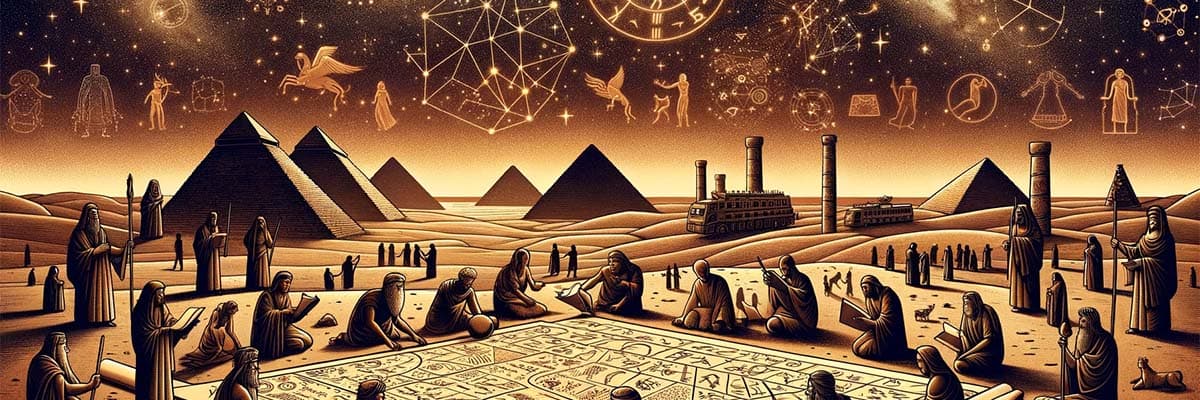
The Origins of Astrology
October 20, 2023
Astrology, with its intricate symbols and celestial interpretations, has been a subject of human fascination for millennia. This ancient practice, which predates many modern sciences, offers a unique glimpse into how our ancestors viewed the cosmos and its influence on human life. This blog post explores the deep and varied origins of astrology, tracing its evolution from ancient Mesopotamia to its diverse forms across cultures.
How It All Began: Ancient Mesopotamia
The story of astrology begins in ancient Mesopotamia, particularly with the Babylonians in the 2nd millennium BCE. These early astrologers observed the movements of planets and stars, correlating them with earthly events such as weather changes and major political occurrences. Babylonian astrology was initially focused on predicting these events to assist in agricultural planning and the affairs of the state.
The Babylonians developed a zodiac system, segmenting the sky into twelve sections, each named after the prominent constellations observed throughout the year. This system laid the groundwork for the astrological practices that would spread and evolve across the world.
The Spread of Astrology through Cultural Exchange
The transmission of astrological knowledge to Greece marked a significant turning point. During the Hellenistic period, Greek scholars, influenced by Babylonian and Egyptian systems, began to develop personal horoscopes. This new approach involved creating astrological charts for individuals based on the positions of celestial bodies at the time of their birth, a practice that profoundly influenced Western astrology.
The Greeks also enhanced the understanding of planetary influences. They attributed specific characteristics and gods to planets, integrating them into their mythological framework. This period saw the birth of the idea that celestial bodies could influence individual destinies, laying the foundation for horoscopic astrology.
Meanwhile, in India, astrology took a unique turn with the emergence of Vedic astrology. Rooted in ancient Hindu scriptures known as Vedas, Vedic astrology (also called Jyotisha) incorporates a more spiritual and karmic view of life. It focuses on understanding the past, present, and future to help guide individuals towards their dharma (duty or life's purpose).
Vedic astrology uses a different zodiac system, which is aligned with the Sidereal Zodiac based on the actual positions of the constellations. This system, distinct from the Tropical Zodiac used in Western astrology, reflects a deep connection between Indian astrology and astronomy.
Conclusion
The origins of astrology reveal a rich tapestry of cultural exchange and intellectual evolution. From the Babylonians' sky observations to the Greeks' development of personal horoscopes, and the spiritual depth of Vedic astrology in India, this ancient practice has been a constant companion in humanity's quest to understand the greater universe and our place within it. As astrology continues to evolve, its historical roots offer invaluable insights into the collective human experience.
No one can be defined by just one sign.
See for yourself, with a free horoscope.
Generate a Horoscope